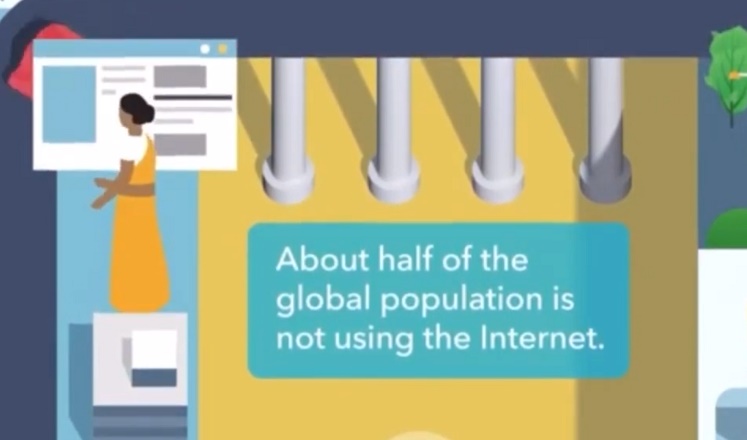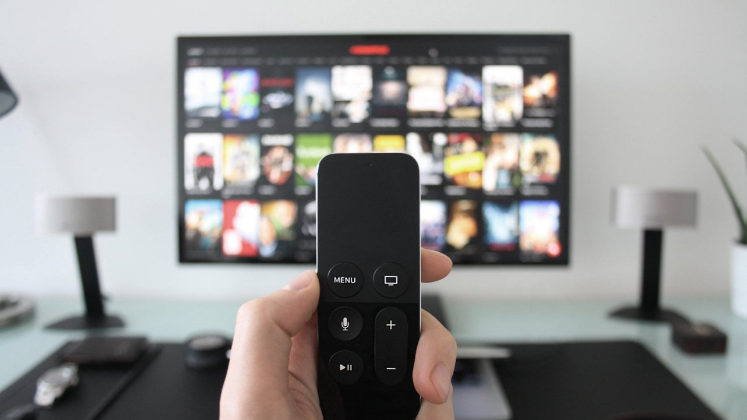If we are to believe media reports, technology is having a huge impact on our behaviour and we may be walking into a timebomb. Research shows that our brains are malleable but, as technology has progressed at such a rate, the data does not yet show how, and to what extent, it is affecting our behaviour. How can research and tech companies ensure we understand the impact of what we are building and build tech for good? In this post, Executive MSc Behavioural Science alumna Ginny Follen explores her dissertation research.
Advancement in technology over the past three decades has led to visible transformations in society. Its impact on us as individuals however is not as clear. Anecdotally we have stories of tech impacting our behaviour (and by tech I am referring to personal devices or IOT in the home). For example, I recall sitting in a theatre c.2008 and in the interval my friend reached for his new ‘iPhone’ and I asked him what could possibly be so important that he needed to check his phone. Whereas now, we check our phones on average 100 times a day. Many cannot imagine life without a smartphone spending 29.4 hours per week on it. And some, have never known life without it.
The Net Generation
The Net Generation are those born since the mid-90s, who have only ever been alive with the internet. They are also the generation who stand to be the most impacted by technology. This is because our brains are malleable, and never more so than when we are children or adolescents – scans of our brains provide evidence that they work differently under different technological conditions. The new opportunities and contexts for behaviour that technology provides, will strengthen different neural connections in our brains than those born pre-mid 1990s experienced as children. What impact might this be having on humanity?
The negative impact of technology on behaviour
The media is rife with accusations that social media and our reliance on our devices are bad for us and indeed seeing the, at times, devastating impact social media can have on bullying and the mental health of youth, it is hard to see it any other way.
But, when you analyse the scientific literature, the reality is not so black and white.
Some scientists argue that devices foster social isolation (Turkle, S. (2011): whilst we may have online friends, this is to the detriment of our real-life relationships – think kids, parents and partners being on their phones at dinner time rather than interacting with each other, and think of my friend checking his phone during the theatre interval. This is actually termed phubbing ‘phone snubbing’ or ‘technoference’ (David, M. E., Roberts, J. A., & Christenson, B, 2017).
There is also evidence suggesting those who use social media exhibit higher levels of narcissism. The focus of social media use is on how we present ourselves: we are at the centre of it – our photos, how many likes we get, how many friends we accumulate – thus driving narcissism.
The consequences of social isolation and narcissism include antisocial behaviours, a reduction in empathy, an increase in cyberbullying, to name but a few.
The positive impacts of technology on behaviour
But there are also positive impacts on behaviours. The use of smart devices and the internet of things has launched a movement called behavioural informatics – people who use the insights offered to them via e.g. their fitness watch, to improve health behaviours. Ironically, there are apps available to help people reduce their screen-time, or to build a new habit. Look at Noom – an app leveraged by those who wish to lose weight.
Social media use has been shown to have a positive impact on a person’s empathy for others. It is also beneficial for those who experience social awkwardness, for example autistic people benefit from online interactions. The ease of international communication online through communities has really driven social/activism movements forward (think ice bucket challenge and ALS) allowing people to express pro-sociality and also to find likeminded people (Waytz, A., & Gray, K, 2018).
So, which is it? Do different online behaviours foster different results? It could appear so, one study found no relationship between being online and a person’s level of empathy, except for those who game online, these people exhibited a reduction in empathetic behaviour in a real-world situation (Carrier, L. M., Spradlin, A., Bunce, J. P., & Rosen, L. D, 2015) Maybe gaming is bad for us, but nothing else? In truth – we do not know.
The problem with scientific research into technology’s impact on behaviours
Academic literature self-acknowledges that it is flawed. When scientists run their experiments – they do not use consistent definitions, which means they measure different things but call it by the same name. A quick example is ‘social media’ which can include or it can exclude WhatsApp and messaging apps. It is also incredibly hard to discover if using social media causes, let’s say narcissism, or whether simply people who are more narcissistic are more likely to use those apps. (This is because in this day and age it is very hard to find enough people who have never been online – which would help scientists rather a lot).
The sheer variety of behaviour
Even if we achieved consistent definitions and measurements, the fact of the matter is, there are so many behaviours – patience, empathy, wellbeing, addiction, kindness. The sheer volume of permutations and combinations of online activity and behaviours would require a lot of studies. It takes months if not years to experiment, and it can take years for your study to be published. Then years more for your study to be replicated, and ‘proven’, if at all. Whereas technology / software / social media (TikTok is barely even mentioned in the literature) are progressing at a whopping rate. By the time most of these studies come out – technology has long since outstripped its conclusions.
What can we do about it?
A recent awful case in the UK has resulted in a coroner officially placing blame for a vulnerable teenager’s suicide at the door of Meta’s algorithms, placing a spotlight on Big Tech and how it operates and designs its products.
Technology companies, UX and product teams need to be aware that what they design, matters – even if we aren’t entirely sure how. Its impact has the potential to be game-changing. There is burgeoning literature that showcases how virtual reality can change even, for example, racist behaviour. This makes the emergence of the metaverse – an arena with little to no research – that is being designed and driven by a tech company – and is not regulated in any way – a concern. Tech companies should seek out academics, who would be able to leverage their data and platforms to provide academic rigour in understanding unintended behavioural consequences.
Our brains are malleable, and technology has progressed at such a rate, that we do not actually know if or how it is changing us. There are both positive and negative impacts on behaviour, but the field is complex and under-researched. Tech companies and universities need to find a way to work together to share data and knowledge to ensure a) we understand the impact of what we are building, and therefore b) build tech for good.
Notes
- The opinions in this post are of the author and not the Department of Psychological and Behavioural Science, nor the LSE.
- Images sourced via Canva.
Bibliography
- Small, G. W., Lee, J., Kaufman, A., Jalil, J., Siddarth, P., Gaddipati, H., Moody, T. D., & Bookheimer, S. Y. (2020). Brain health consequences of digital technology use. Dialogues in Clinical Neuroscience, 22(2), 179. https://doi.org/10.31887/DCNS.2020.22.2/GSMALL
- Turkle, S. (2011). Alone together: Why we expect more from technology and less from each other. Basic Books.
- David, M. E., Roberts, J. A., & Christenson, B. (2017). Too Much of a Good Thing: Investigating the Association between Actual Smartphone Use and Individual Well-Being. Https://Doi.Org/10.1080/10447318.2017.1349250, 34(3), 265–275.
- Waytz, A., & Gray, K. (2018). Does Online Technology Make Us More or Less Sociable? A Preliminary Review and Call for Research. Perspectives on Psychological Science, 13(4), 473–491. https://doi.org/10.1177/1745691617746509
- Carrier, L. M., Spradlin, A., Bunce, J. P., & Rosen, L. D. (2015). Virtual empathy: Positive and negative impacts of going online upon empathy in young adults. Computers in Human Behavior, 52, 39–48. https://doi.org/10.1016/J.CHB.2015.05.026





1 Comments